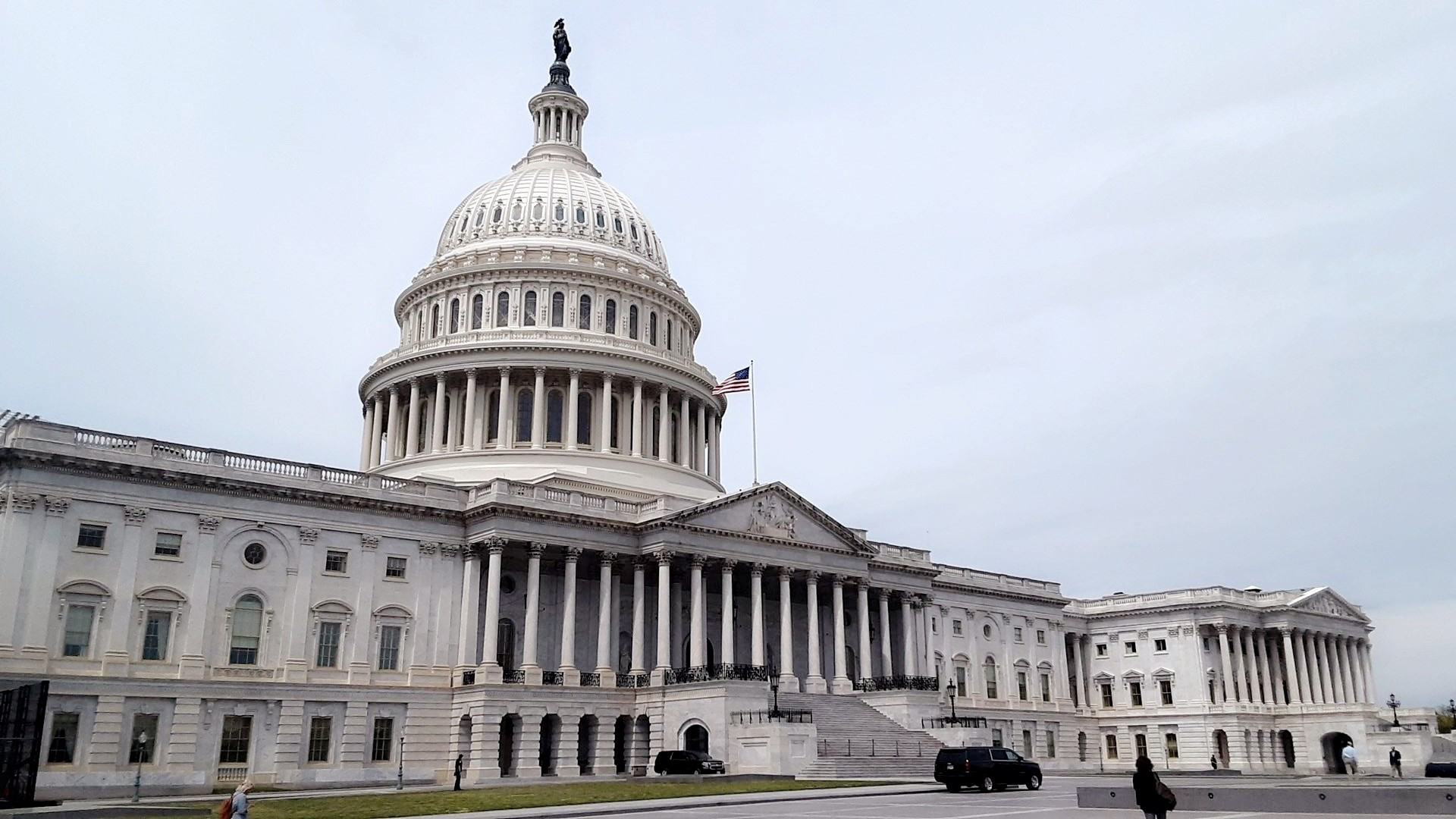Historic Cryptocurrency Legislation Passes US House, Awaits Trump’s Signature

Regulatory Developments in Cryptocurrency: The GENIUS Act and Its Implications
Bipartisan Support for Crypto Regulation
The cryptocurrency sector is witnessing significant legislative activity, with recent approvals in the House of Representatives aimed at regulating digital currencies. This week, dubbed “Crypto Week” by Republican lawmakers, has sparked concerns among financial transparency advocates who argue that the new regulations may not adequately address the risks of illicit financial activities across borders.
One of the key pieces of legislation, the Guiding and Establishing National Innovation for U.S. Stablecoins (GENIUS) Act, has garnered bipartisan backing and is now headed to President Trump for his signature after passing in the Senate in mid-June. This law aims to establish federal guidelines for stablecoins—cryptocurrencies designed to maintain a stable value by being pegged to traditional assets like the U.S. dollar or the Euro.
Key Provisions of the GENIUS Act
Under the GENIUS Act, entities that issue permitted payment stablecoins will be mandated to maintain reserves equivalent to the total amount of stablecoins they offer. These reserves can include insured bank deposits, short-term Treasury bills, and other government-approved assets. Additionally, in the event of bankruptcy, holders of stablecoins will have priority over other claims against the issuer.
The legislation clarifies that stablecoins are neither classified as commodities nor securities, thus exempting them from the corresponding regulatory frameworks. However, it also specifies that these digital currencies will not be federally insured.
“The secondary market is totally unregulated by any of these bills. So it’s a pretty obvious loophole, a pretty obvious map for evading U.S. law.”
— Scott Greytak, Transparency International
Following the House vote, Senator Bill Hagerty from Tennessee expressed optimism about the legislation, calling it a crucial step toward positioning the U.S. as a leader in the global cryptocurrency landscape. President Trump has also shown strong support for the bill, urging lawmakers to expedite its passage amid reports of his family’s investments in the crypto sector.
Concerns Over Regulatory Gaps
Despite the positive reception from some lawmakers, critics, including Democratic Representative Rashida Tlaib from Michigan, have raised alarms about the potential for creating a new form of shadow banking through the issuance of private stablecoins. This concern echoes the issues that arose during the 2008 financial crisis, where lightly regulated entities contributed to systemic failures.
Major corporations like Walmart and Amazon are reportedly considering launching their own stablecoins, a move that could stifle competition among smaller vendors while enabling these giants to reduce operational costs.
Risks of Foreign Stablecoins
The GENIUS Act has particularly alarmed anti-corruption advocates, who argue that it contains significant loopholes that could facilitate money laundering and sanctions evasion. Critics highlight the lack of clarity regarding the regulation of stablecoins issued by foreign companies and decentralized platforms, which can obscure transaction trails.
One major concern is what advocates refer to as the “Tether loophole.” This refers to the bill’s insufficient regulation of stablecoins issued by companies outside U.S. jurisdiction, such as Tether, which operates from the British Virgin Islands. These stablecoins can easily enter the U.S. market through secondary channels, raising questions about regulatory oversight.
“If you’re selling a stablecoin through Tether directly to somebody in the United States, they’re going to be covered by this law. But what if an American goes to Mexico or anywhere outside of U.S. jurisdiction, stocks up on a bunch of crypto, and then sells it in the United States? That’s what we call the secondary market, and the secondary market is totally unregulated by any of these bills.”
— Scott Greytak, Transparency International
In response to these concerns, advocacy groups have urged lawmakers to amend the legislation to include broader definitions of stablecoin issuers that encompass secondary channels.
The Digital Asset Market Clarity Act
In addition to the GENIUS Act, the House has also passed the Digital Asset Market Clarity Act, which aims to establish a regulatory framework for determining when a cryptocurrency should be classified as a security or a commodity. This bill is now awaiting consideration in the Senate, which is expected to propose its own market structure legislation for cryptocurrencies.
However, critics argue that this bill also falls short in ensuring robust compliance mechanisms. Mark Hays from Americans for Financial Reform has pointed out that many crypto platforms combine functions typically performed by separate entities in traditional finance, creating potential conflicts of interest.
“The industry wants a regulatory framework that allows that and many other things like that to continue. To basically allow the crypto industry to do the same thing that the current financial sector does, but with weaker, less stringent rules.”
— Mark Hays, Americans for Financial Reform
Amanda Fischer, a former SEC chief of staff, criticized the Clarity Act for codifying existing business models of crypto companies while failing to align with established securities laws.
The Anti-CBDC Surveillance State Act
Another piece of legislation, the Anti-CBDC Surveillance State Act, has also passed, albeit by a narrower margin. This bill seeks to prevent the Federal Reserve from issuing a digital currency, with proponents arguing that it would protect Americans from potential surveillance of their purchasing behaviors.
Globally, numerous countries, including France, Brazil, and China, have initiated pilots for Central Bank Digital Currencies (CBDCs) to enhance cross-border payment accessibility and streamline monetary flows.
Consumer Protection Concerns
Consumer advocates have expressed concerns that the recent crypto bills lack adequate protections for users, particularly as President Trump’s proposed budget cuts funding for the Consumer Financial Protection Bureau (CFPB). Established after the 2008 financial crisis, the CFPB’s mission is to safeguard consumers from financial malpractices.
“In the GENIUS Act, CFPB is not even mentioned — and that agency’s sole purpose is protecting consumers.”
— Aleks Ring, Operation Shamrock
Aleks Ring, a forensic accountant specializing in cryptocurrency, noted that most scams she encounters involve international transactions, highlighting the challenges of tracing and recovering funds.
Scammers are increasingly turning to cryptocurrency due to its speed and difficulty in reversing transactions. Unlike traditional wire transfers, crypto transactions are largely irreversible, making it challenging for victims to recover lost funds.
In 2024, the FBI reported nearly 150,000 financial fraud complaints related to cryptocurrency, with victims collectively losing $9.3 billion.
The Need for Collaborative Efforts
Experts emphasize the necessity for enhanced collaboration among platforms often exploited by scammers, as well as increased public awareness. Jorij Abraham, managing director of the Global Anti-Scam Alliance, stressed that all stakeholders must take more proactive measures to combat fraud.
“We really believe all the stakeholders need to do more, because it’s now too easy to set up an online store, advertise it, create a bank account, launder the money.”
— Jorij Abraham, Global Anti-Scam Alliance
Abraham pointed out that while some industries, like online dating, have made significant investments in fraud prevention, not all platforms have the same incentive to intercept fraudulent activities.
As the cryptocurrency landscape continues to evolve, the implications of these legislative developments will be closely monitored by both advocates and critics alike.







